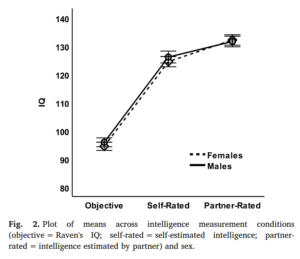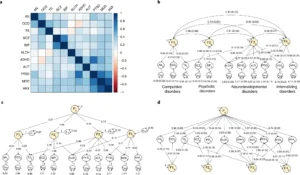In our third installment of our new work in this issue of Mankind Quarterly, we’re branching off into political science:
- Jensen, S., & Kirkegaard, E. O. W. (2023). Who Believes It’s the Government’s Responsibility? Mankind Quarterly, 64(2), Article 7. https://doi.org/10.46469/mq.2023.64.2.7
Research has shown that intelligence correlates with different ideological and political beliefs, even when extensive controls are used. Based on data from the NLSY97 dataset, Belief in Governmental Responsibility (BGR) (r = -.35, 95 % CI -.40, -.30) and Belief in Individual Responsibility (BIR) (r = -.25, 95 % CI -.30, -.20) were both negatively correlated with general intelligence. Analysis using a bifactor model indicated that, independent of general intelligence, crystalized ability was negatively associated with BIR (path coefficient = -.24, p < .001). General intelligence was negatively related to both BIR (path coefficient = -.24, p < .001) and BGR (path coefficient = -.29, p < .001) according to structural equation modeling. Covariates such as race, sex, parental SES, income, and education could not account for these relationships. The relationship between ideological extremism and intelligence was also evaluated. Contrary to previous research, the correlation between political extremism and cognitive ability was weak and negligible for both BGR (r = -.008, p = .77) and BIR (r = -.07, p < .01).
Keywords: Intelligence, IQ, Psychometrics, g factor, Political views
It is common in libertarian circles to be happy, or even gloat, about libertarians’ high intelligence compared to adherents of other ideologies. This “my tribe has better psychological traits than yours” is of course not specific to libertarians. There is a whole industry in political psychology concerned with proving conservatives are bad people broadly speaking. Given the political imbalances of psychology, this is almost the default goal of research on the topic. For this reason, there are a lot of low hanging fruit for non-egalitarian minded researchers to look into the ways their own tribes are superior in some way or another. Most importantly, of course, would be to show who’s smarter. Thus, we get the ironic result that the same people who dislike intelligence research are happy to cite it when their own political tribe is in the forefront. With this in mind, you can consider our new study looking at the relationships between belief in responsibility and intelligence.
We used the well-known NLSY97 dataset. This is a long-running, large American study that follows a cohort of people who were born in 1980-84, and who were recruited into the study in 1997. This dataset is a near-replication of the NLSY79 which is the dataset that formed the basis of The Bell Curve and numerous other research studies. The dataset features 1000s of variables, among them, good measure of intelligence as well as some limited questionnaire data about political ideology related views, which is what we are using here. The dataset is open access in the proper sense that literally anyone can download it on the NLS Investigator.
Chiefly, we were interested in the answers to these 2 sets of questions: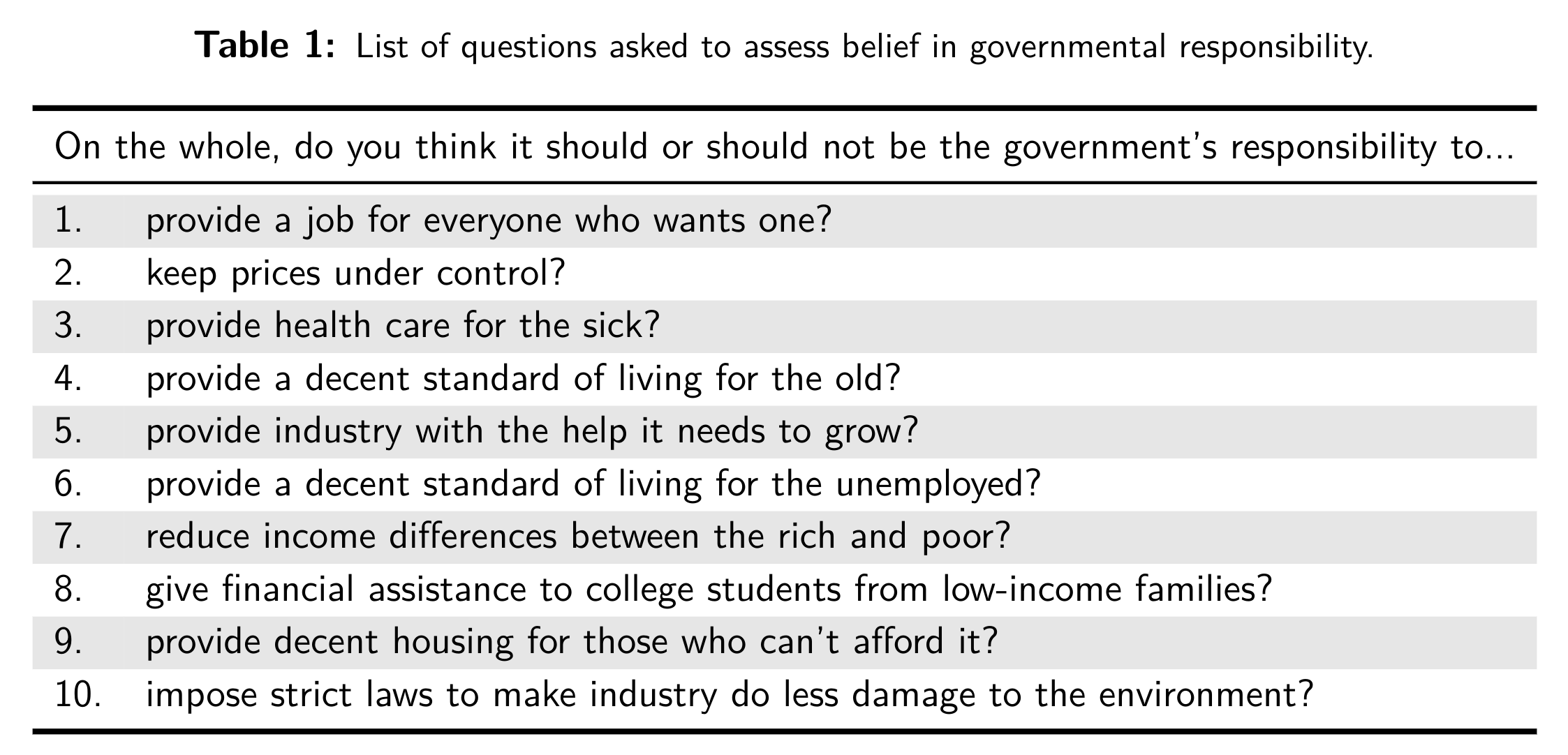
And:

Based on the answers to the questions, we could classify people who think things aren’t the governments responsibility as being libertarians, but also only if they said it’s people’s own responsibility. It would seem, then, that people who think it’s no one’s responsibility are nihilists. They don’t believe in the idea of responsibility. At least, I can’t think of another good way to think about it.
Replicating the existing literature, we found that intelligence relates to not thinking it’s the government’s job to solve problems:
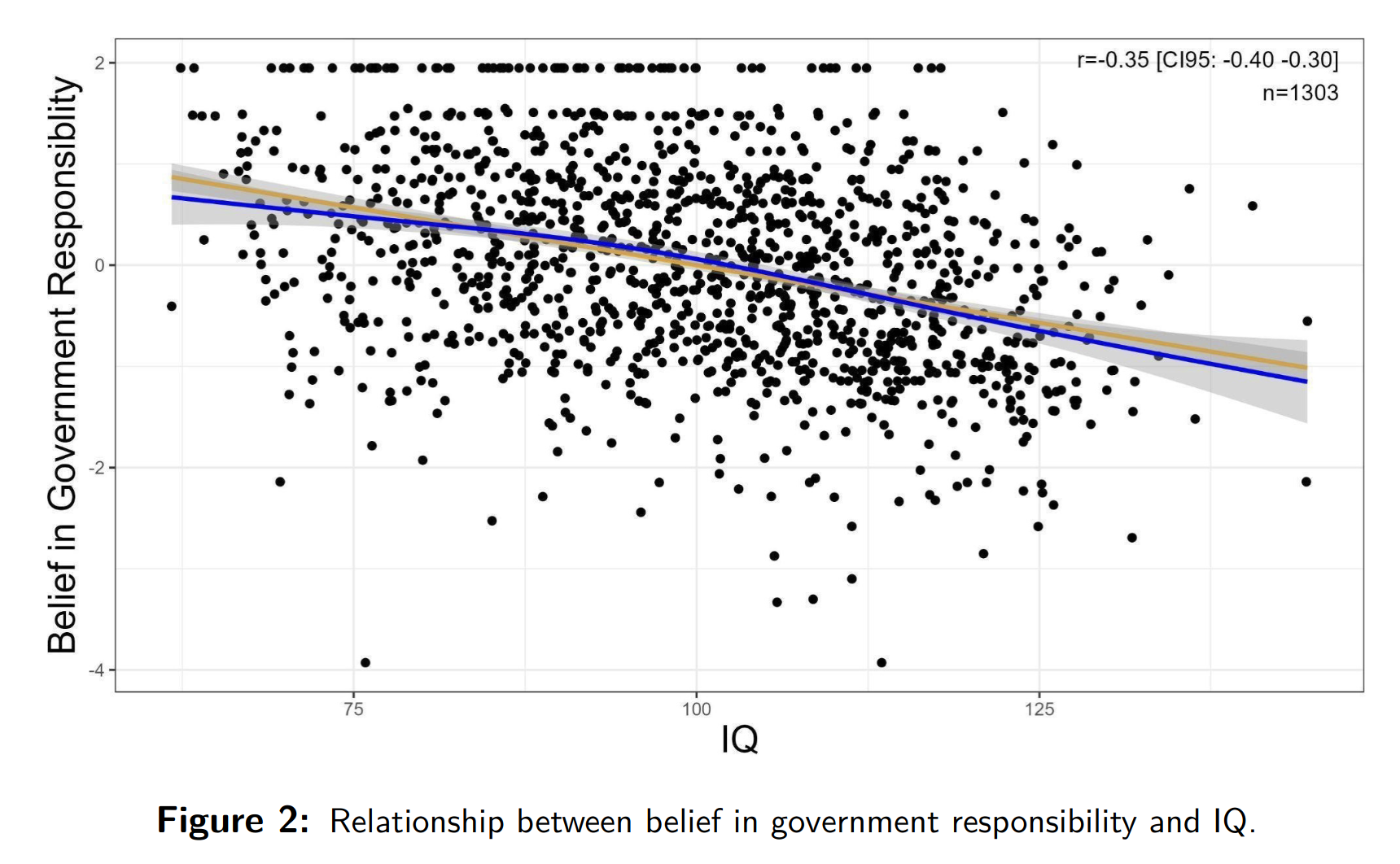
The association is quite strong too insofar as political science is concerned (r = -0.35). There’s no nonlinear effect (orange line = linear fit, blue line = LOESS). Strangely, though, we find that intelligence also relates to not thinking it’s people own responsibility:
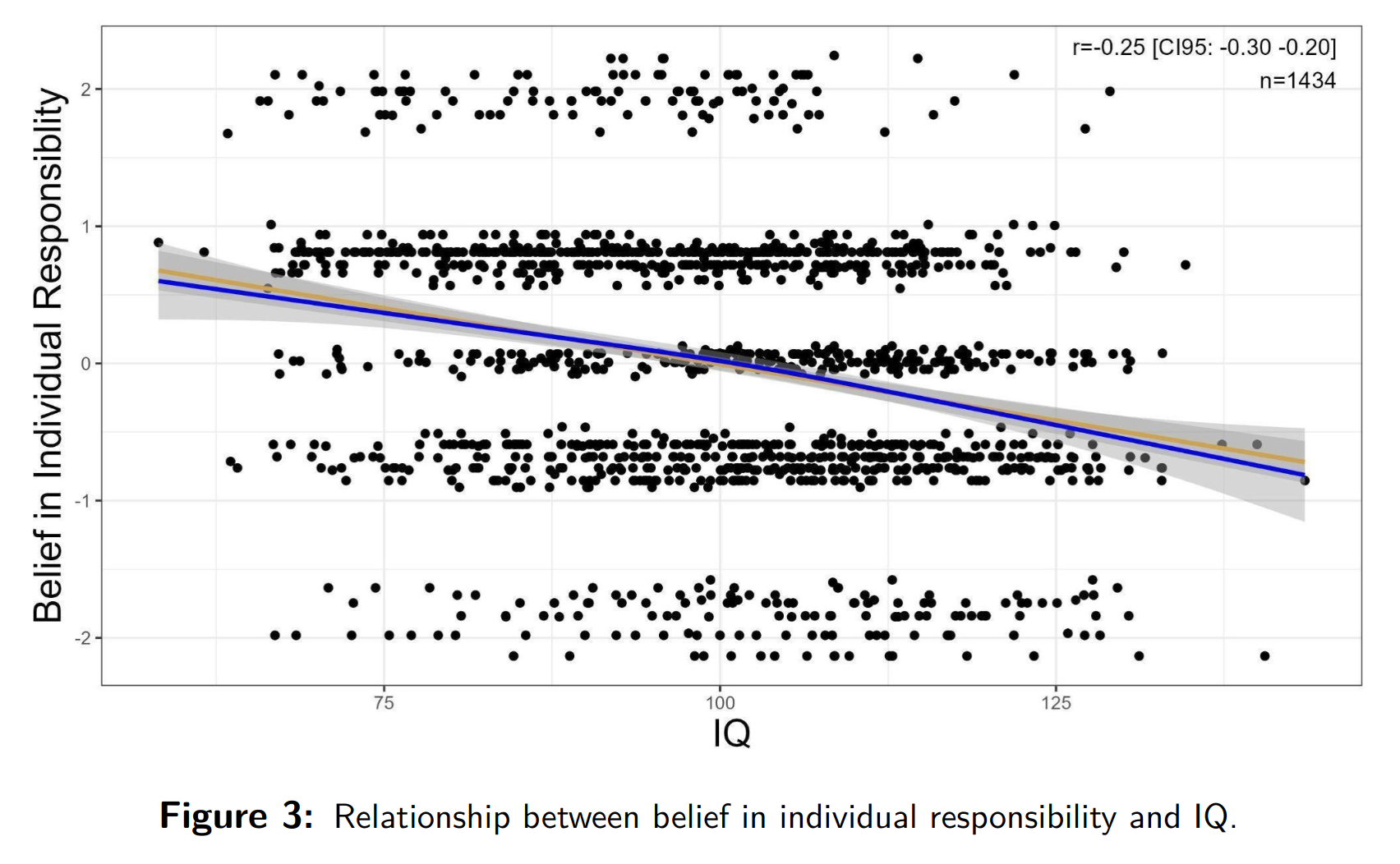
Like before, there is no sign of anything nonlinear going on.
You might think that this pattern has something to do with some kind of confounder, maybe race differences or social status, but no:
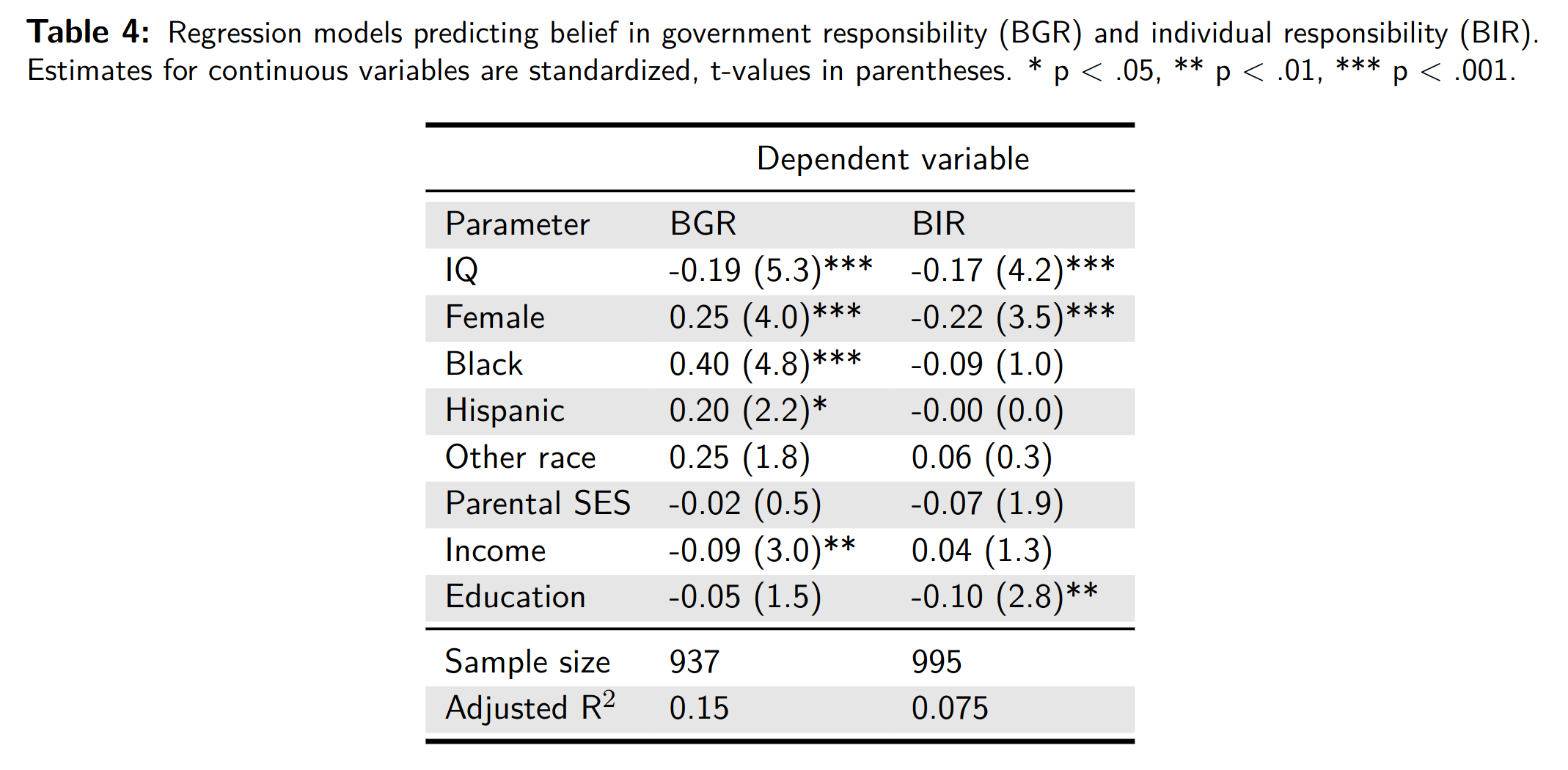
At least, not entirely. A bit more than half of the original association between intelligence and lack of belief in government responsibility remains after adjusting for many things (r = -0.35 to beta = -0.19), even too many things (income and education are caused by intelligence, so this might be controlling for a mediator). Unsurprisingly, women think it’s more the government’s and less the individuals’ responsibility. In other words, women are more socialist in their thinking about politics. The same is true for non-Whites (non-Europeans).
The above measures have some measurement error in them, and maybe a lot (the individual responsibility scale is only 3 questions), so we also used latent models:

Here you can compare the path for intelligence to belief in government’s responsibility before and after adjusting for the reliability: beta = -0.19 vs. -0.29 (+50%). This kind of finding illustrates how ignoring measurement problems often result in severe underestimation of effect sizes. The results were weaker but in the same direction for belief in individual responsibility: beta = -0.17 to -0.24.
You might also wonder about non-g abilities, that is, verbal tilt or math tilt etc. (g = general intelligence). The above plot is difficult to interpret here because the latent factors for the other abilities are from a hierarchical model that mixes up the g and non-g variance. Using a residualization approach, we can remove the g variance from the group factors and see if they have any remaining effects:

It doesn’t appear that non-g abilities predict anything with regards to government responsibility, but they do a little bit for individual responsibility:

Beyond g, crystalized ability (accumulated knowledge) predicts less belief in individual responsibility, as does education. There is a slight effect of technical knowledge (a male domain) to predict more belief in individuals’ responsibility but the signal is weak (p < .05).
Summary
We studied a large American dataset to see how intelligence relates to belief in government and individual responsibility. Unsurprisingly, we find that more intelligence predicts more libertarian views about the government’s role. Strangely, intelligence also predicts less belief in individuals’ own responsibility. It appears then that smart people are more likely to be nihilists. There is some suggestion that accumulated knowledge and education make this pattern stronger insofar as individuals’ own responsibility is concerned. We also replicated the usual findings that women and non-Whites are more socialist than men and Whites in these political attitudes. From an immigration and libertarian perspective then, more non-Whites in your country means the state will grow faster than it already does.
